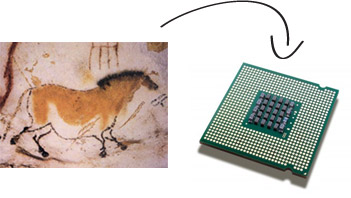Core challenges

The first-cycle curriculum encompasses six directional challenges:
Wisdom and philosophy. In this challenge, we trace the paths of wisdom from the earliest times to the present. We reconstruct the paths that philosophers, artists and scholars followed in search of wisdom. We attach special importance to finding continuity in the efforts of scholars and artists to build knowledge and concepts that bring us closer to understanding the world.
Gods and humans.We trace the rise, presence and disappearance of areas of sanctity: gods, worship and religious movements through the centuries. The classes consider not only the history of religion but also the history of the presence of the sacred in culture.
History of civic thought. We offer classes on the development of thinking about the state, law and civic attitudes from the earliest times to the present day. This challenge also encompasses issues of social movements and relations between individuals and the communities they live in.
Memory and identity. We discuss ways in which human societies coexist (peacefully or not) in a multicultural world. We also consider the possibilities of inter-civilizational dialog and relations between culture and nature in a historical perspective. Classes are also devoted to the development of individual and group identity, especially in situations of tension and conflict.
Theatrum mundi. These classes consider the development of artistic as well as social spectacles from the earliest times to the present day, with special emphasis on performative activities. We study the rise of a “society of the spectacle” which functions by building spectacles in public space, political life and interpersonal relations. We also discuss spectacles taking place in nature, in both the animal and the plant world.
Ecology of culture. We offer classes on the possibilities of staging “active culture,” e.g. revitalizing dead and dying languages, co-creating cultural activity in different social environments, and other projects of a scientific-artistic nature. To this aim, we work with the Gardzienice Centre for Theatre Practices, the Polski Theatre in Warsaw and the Laboratory for Encounters between the Old and New Worlds at the Faculty of “Artes Liberales,” among others. We also offer classes on mutual relations between humans and animals, and humans and their environment.


